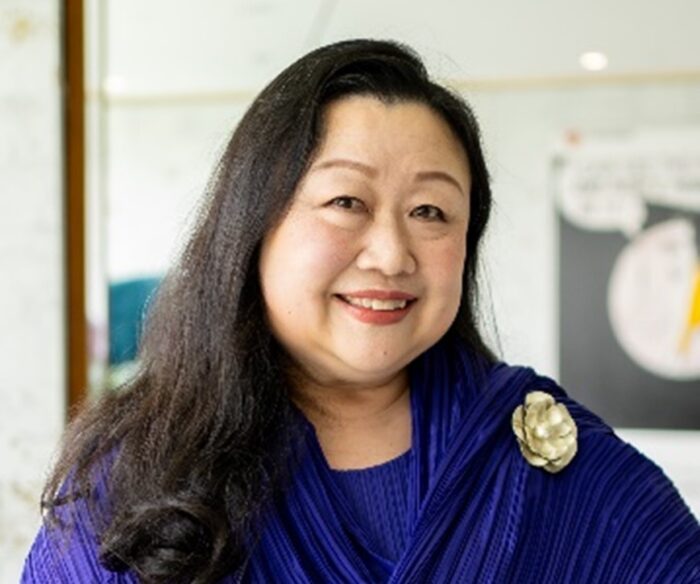Building female leaders of the future with mentorship
- Champa Ha

Mentorship in organisations can be tricky, especially when the results aim to increase representation for those with fewer opportunities to leadership roles, such as those in minority groups, like women, non-majority racial groups, and LGBTQIA+ employees. Advancing more minority representatives to leadership roles and corporate boards in Singapore has become paramount, to not just promote a diverse range of opinions that can then be shaped to change organisations for the better, but also help pivot and make organisations more agile to external and internal changes.
BoardAgender, an initiative of the Singapore Council of Women’s Organisations, started in 2011 to help advance the cause of female directors on to more organisational boards in Singapore. To do that, the organisation focuses on increasing the awareness of gender-balanced boards and businesses in Singapore and building a pipeline of board-ready women directors through their signature mentorship programme. This is imperative, especially for Georgette Tan, Chair of BoardAgender, President of United Women Singapore (UWS) and board member of the Singapore Council of Women’s Organisations (SCWO), who told HRM Asia how preconceived notions about gender roles can hinder women’s advancement in the workplace, especially in traditionally male-dominated fields.
“Stereotypes associating women with softer roles clash with the traditional perception of leadership as assertive and commanding, potentially undermining the perceived effectiveness of women in leadership roles,” explained Tan. The perceived emotionality of women and its impact on judgement can also make people believe that they are unable to handle high-pressure situations or make objective decisions.
Another challenge that can affect women’s advancement in the workplace? The societal expectations surrounding work-life balance and familial responsibilities. “Women who choose to take breaks for family reasons may find themselves set back compared to male counterparts who joined the workforce at the same time,” Tan continued. Thus, with these pauses in their career journey, there is a need to continue to expand and deepen connections and networks which is essential for advancing through their corporate journey. “Continual learning and upskilling are needed for women to overcome these challenges to stay in the game,” Tan elaborated.

“Stereotypes associating women with softer roles clash with the traditional perception of leadership as assertive and commanding, potentially undermining the perceived effectiveness of women in leadership roles” – Georgette Tan, Chair, BoardAgender, President of United Women Singapore (UWS) and board member of the Singapore Council of Women’s Organisations (SCWO)
The BoardAgender Mentoring Programme for Aspiring Women Directors was created to address these challenges and fast-track women to corporate board leadership, providing aspiring women directors with the opportunity to develop as directors and contribute to boards mainly through upskilling and growing networks.
“Through a meticulous selection process, 10 women are selected to undergo the programme every year and are mentored by established board directors,” Tan said, elaborating that the one-on-one guidance provided allows mentees to gain deeper insights into governance, board dynamics and directorship.
With sessions that provide lessons on non-profit directorship, board CV development, and personal brand building, the programme is filled with invaluable advice, guidance, and support, that mentees can gain so that they can learn how to contribute effectively as directors and achieve their professional development goals. They can also develop skills to become future mentors to the next generations, creating what Tan hopes would be a positive cycle of empowerment.
So, what advice would Tan give to organisations looking to create mentorship programmes such as the one BoardAgender is putting in place? Firstly, she suggested that leaders prioritise a rigorous selection process that matches mentors and mentees based on shared interests. Using BoardAgender as an example, Tan shared that by carefully matching mentees’ areas of interest with mentors’ expertise, what they are ensuring is meaningful engagement. “It is also important to clearly outline the programme’s goals and outcomes, defining what mentees and mentors should gain from the experience,” said Tan. “Understanding the purpose of the programme guides its design and ensures its effectiveness.”
READ MORE: 9 ways HR leaders can embrace the ‘opportunity of uncertainty’
Next, Tan highlighted that the programme should also feature a comprehensive curriculum covering practical governance and board dynamics to enrich the mentees’ skill sets, allowing them to contribute meaningfully to corporate boards and allow full understanding.
Finally, Tan underscored fostering a supportive community and network beyond the formal sessions to ensure a lasting impact on the participants, encouraging continuous learning and sustained professional growth for women in leadership. This approach not only promotes individual development but also cultivates a collaborative and empowering network, enabling, and giving confidence to aspiring women directors to thrive in their leadership journeys.






